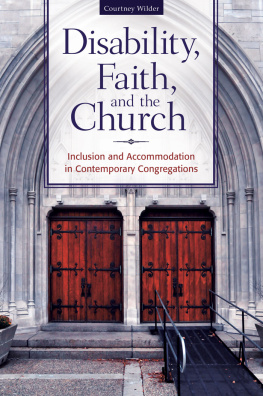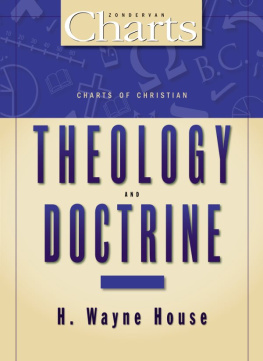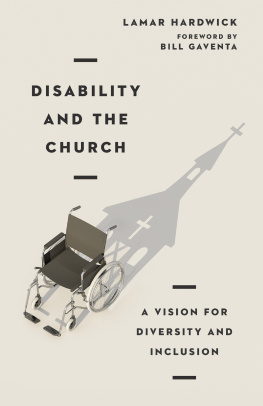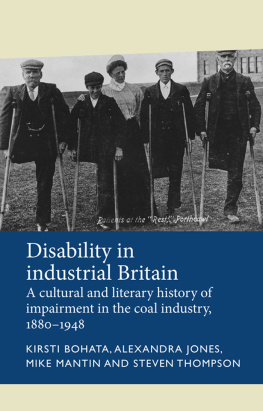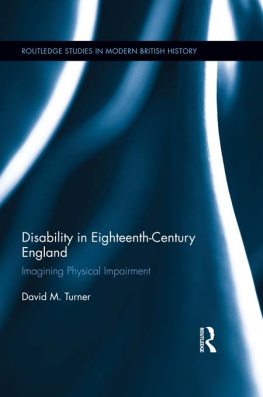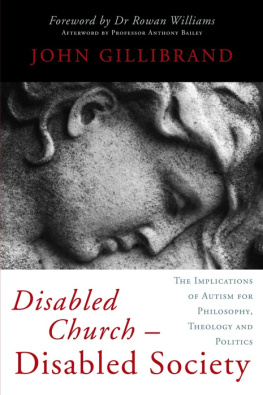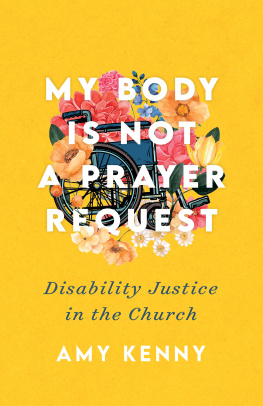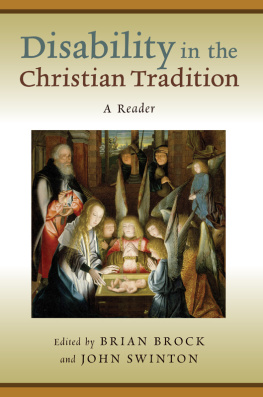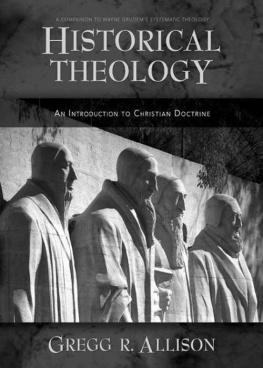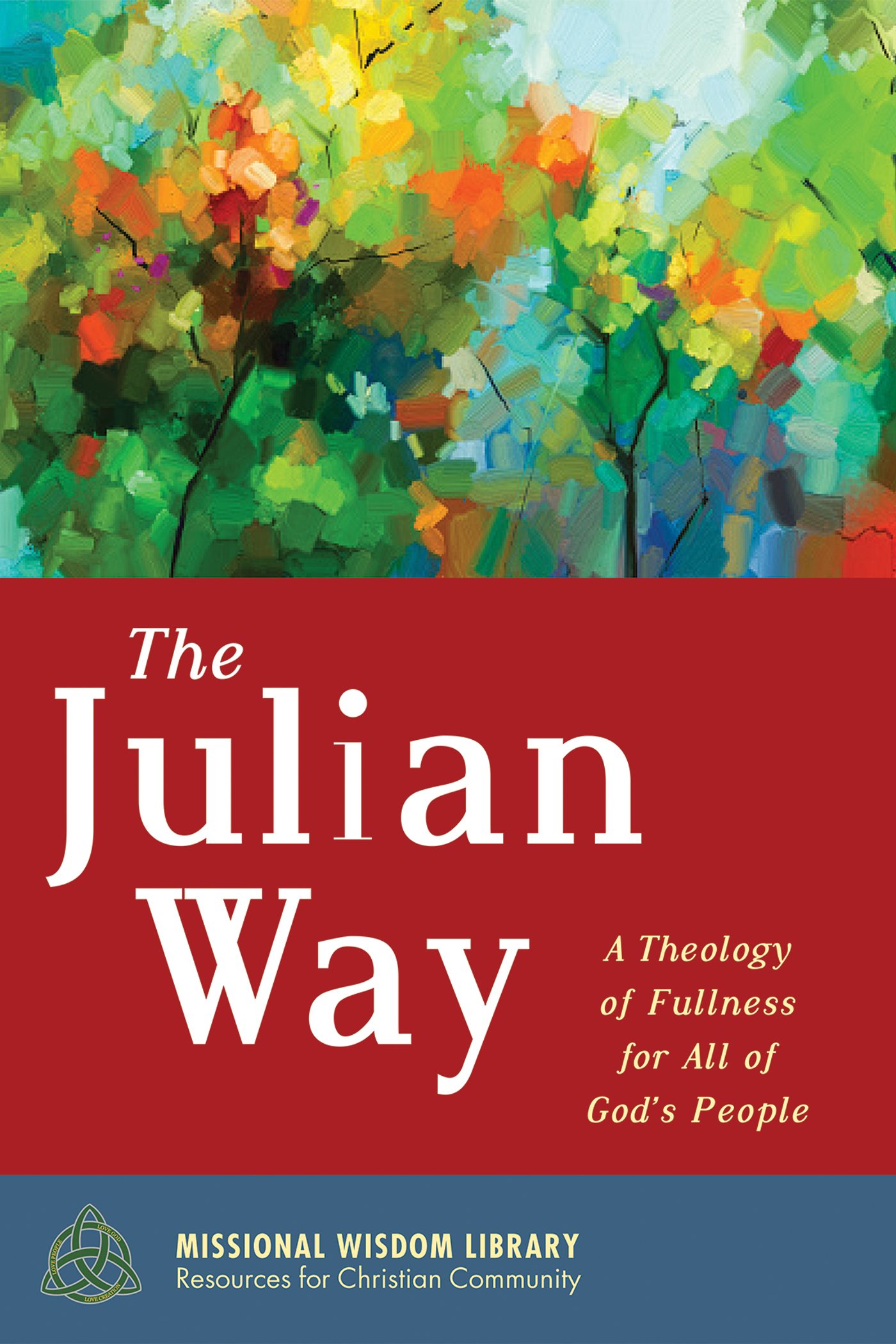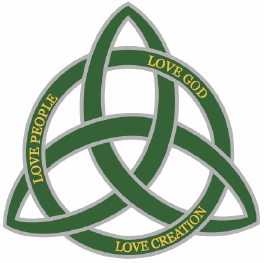The Julian Way brings a vision of community in which all the members are valued, and all forms of giftedness are incorporated into the whole. This vision allows all people to have pride in who they are and to fully experience self-worth within the context of the greater Christian community. Hancock brings the reader an historical and theological overview of the world of disability and calls for a new day of empowerment and grace.
Peggy A. Johnson, Bishop, Philadelphia Area of the United Methodist Church
This book is a beautiful and deeply thoughtful exploration of disability theology from a practitioner whose hard-won wisdom will increasingly impact the church in the years ahead. A must read for Christian leaders.
Elaine A. Heath , Dean, Professor of Missional and Pastoral Theology, Duke University
Religious leaders reading scriptures from an able-bodied perspective will in this deeply moving book find a more inclusive understanding of Gods presence in the world. This book breaks new ground for religious communities to systematically reflect on the human rights of differently-abled persons and widens the knowledge base of the church to articulate a theology of a disabled and vulnerable God. Must read for disability and church studies.
Harold J. Recinos , author of Breathing Space
The Julian Way opened my eyes to see each person as a gift from God. The stories challenge the church to see with new eyes those we consider handicapped. Every congregation needs to read this book before examining where and how God is calling them to make disciples of Jesus Christ in their community.
D. Max Whitfield , Bishop in Residence, Perkins School of Theology, Southern Methodist University
Missional Wisdom Library
Resources for Christian Community
The Missional Wisdom Foundation experiments with and teaches about alternative forms of Christian community. The definition of what constitutes a Christian community is shifting as many seek spiritual growth outside of the traditional confines of church. Christians are experimenting with forming communities around gardens, recreational activities, coworking spaces, and hundreds of other focal points, connecting with their neighbors while being aware of the presence of God in their midst. The Missional Wisdom Library series includes resources that address these kinds of communities and their cultural, theological, and organizational implications.
Series Editor: Larry Duggins
vol. : Missional. Monastic. Mainline.: A Guide to Starting Missional Micro-Communities in Historically Mainline Traditions , by Elaine A. Heath and Larry Duggins
vol. : Simple Harmony: Thoughts on Holistic Christian Life , by Larry Duggins and Elaine A. Heath
vol. : Together: Community as a Means of Grace , by Larry Duggins
vol. : What Kind of God?: Reading the Bible with a Missional Church , by Bret Wells
vol. : Credulous: A Journey through Life, Faith, and the Bulleti n , by Andrea L. Lingle
Forthcoming titles
Virtuous Friendship: The New Testament, Grego-Roman Friendship Language, and Contemporary Community , by Douglas A. Hume
Foreword
I would like to thank Justin for inviting me to write a foreword to his project. I do not self-identify as a theologian or a church historian, so I will leave it to others to assess the theological specifics of this project. Nevertheless, I want to be very clear about this projects starting point because it reflects a simple fact that most of the theological treatments of disability that I have come across, including those of the theologians that Justin engages in the following pages, cannot seem to account for: Justin Hancock is proud of his Cerebral Palsy. Early on in this work, he writes, My Cerebral Palsy is a struggle. Its also something I am very, very proud of. I invite the church to live with us and know us as people. This invitation to the church represents one of the primary goals of Justins project. Yet, no one can live with and know Justin if they are unaware of his CP pride. Justin does not say that he is proud of the ways that he has struggled with, managed, or overcome his Cerebral Palsy. He does not say that he is proud of his many accomplishments or the ways that he has thrived while living with Cerebral Palsy. Instead, he simply claims to be proud of his Cerebral Palsy.
Justin claims this CP pride without qualification or apology. He does not argue that the fact that one has Cerebral Palsy means that one has a unique contribution to offer the church as a member, as a leader, as a sermon illustration, or even as a theological metaphor for the church, the latter of which unfortunately serves as a foundational aspect of some of the theological projects he engages. (Such metaphors only work if, as with the medical model, one isolates disability from the social or cultural contexts emphasized in disability rights and liberation movements and in disability studies.) Justin never justifies, explains, or defends his CP pride. It is simply assumed. For example, when discussing how Dietrich Bonhoeffers work can contribute to a conversation that Justin feels is necessary within disabled communities, he writes, In order for those in the disabled community to claim their rightful place in community with one another and in the larger theological and cultural conversation, it is not necessary that we abandon our pride in our unique disabled situations, but disability can no longer be the starting point and the center piece of our reality. Here, Justin is addressing an in-group conversation among folks with disabilities rather than members of the dominant culture within the larger Church. Notice the way he characterizes the attitudes of folks of disabilities toward our unique disabled situations. It is not characterized as shameful and bitter or romanticized as courageous and inspirational or by any of the other common stereotypes frequently mapped onto our situations. Instead, Justin assumes that it is a source of pride that should not be abandoned. For Justin, it is simply a given that one can be, and is, proud of ones Cerebral Palsy.
He again references his CP pride when he discusses rivalries and hierarchies of disability within disabled communities. These occur between physical vs. cognitive disabilities, visible vs. invisible disabilities, acquired vs. congenital disabilities, and so on. While addressing these concerns, he writes, I will be the first to admit that when I have the opportunity to get together with a number of people with Cerebral Palsy within a larger disabled group, I tend to gravitate towards those with CP because of our common experience and pride in our situation. Once again, Justin makes a passing reference to being proud of Cerebral Palsy. I imagine that he does not elaborate on this passing reference because it is simply a given. For those who share this pride in their Cerebral Palsy, it does not need to be explained or defended.
CP Pride is beyond doubt for Justin. In fact, he makes this perfectly clear when he writes that it is beyond doubt (at least to me) that my Cerebral Palsy has done much to inform my character as an individual and has become a proud part of who I continue to grow to be, both as a man and in the context of my relationship with Jesus Christ. Cerebral Palsy is rarely associated with notions of masculinity, in part because of a tendency to infantilize and desexualize males with Cerebral Palsy or distance us from common stereotypes of masculine behavior within the dominant culture, including, but not limited to, self-control or autonomy. By contrast, Justins Cerebral Palsy shapes not only his religious commitments but his masculinity. It is a proud part of what makes him a man. Early on in this work, he describes me as not only an employed biblical scholar but as a man living with the daily reality of Cerebral Palsy. I was struck by this description because, while I have frequently been described in print with career-first language (a scholar with Cerebral Palsy) or person-first language (a person with Cerebral Palsy), this is the first time that I can remember that someone described me as a man with Cerebral Palsy.


